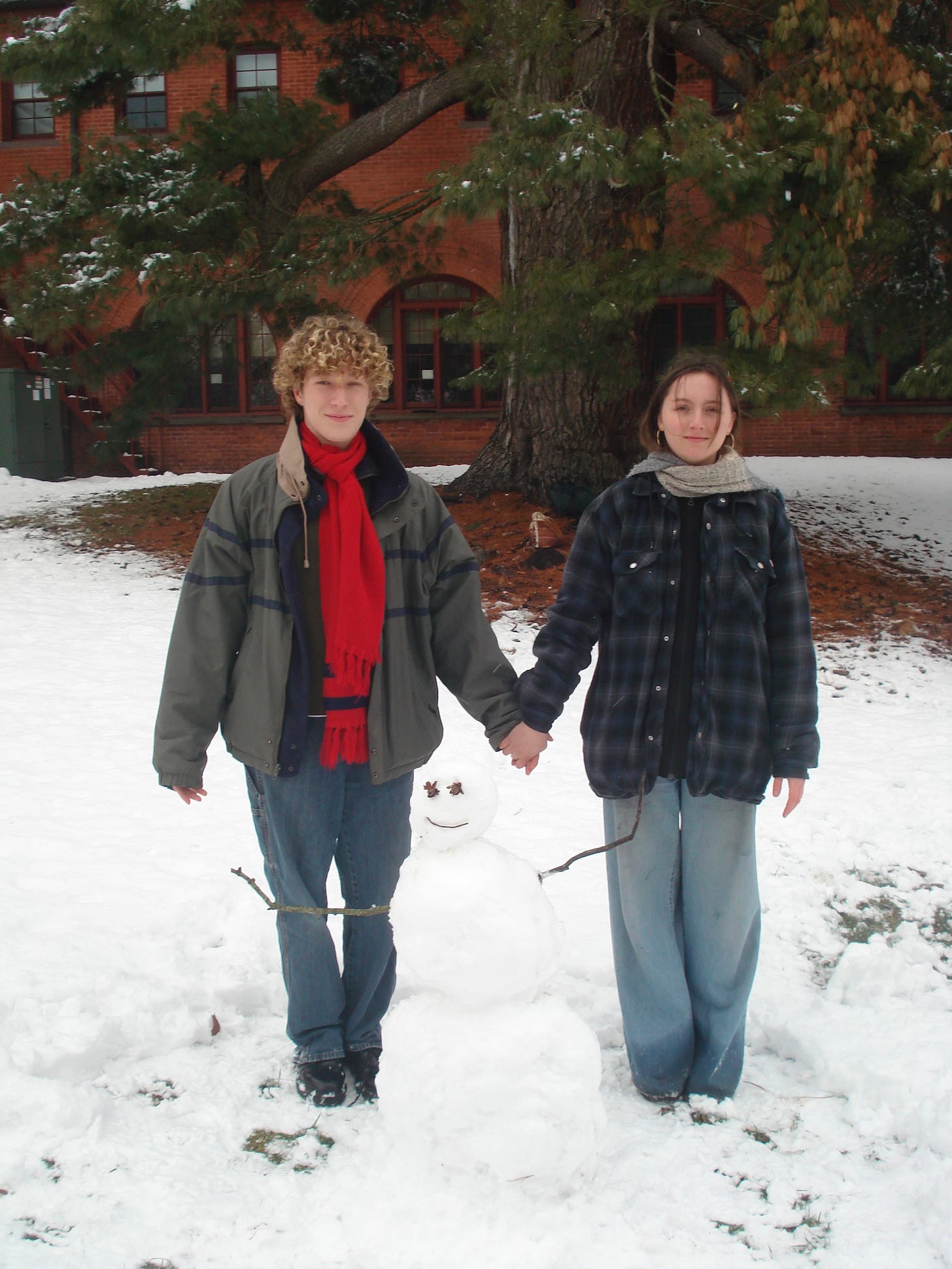Trust But Verify: Mae and Sam
It was finals week. We made a promise... but we didn't yet know the real secret to accountability.
As a college student who struggles occasionally with procrastination, I’ve noticed that the more work I have to do, the more I procrastinate. I don’t want to get started, because then I’ll have to confront how much I have to do. But when finals week rolled around last month, I realized that there was no way around it: I had to sit down and get going. My friend Sam is also a bit of a procrastinator, so I asked him if he wanted to be accountability partners.
“It’s basically good peer pressure,” I told him, “I’ll get it done if you get it done.”
He agreed. We planned to hold each other accountable for the coming week. We decided that we would begin the next morning, which was a Monday. Our mutual friend Andrew said he'd support us — and we planned to drive to the nice cafe in town the following morning at 8am to really buckle down.
At 8:20 am the following morning, Sam was not answering his calls. We had promised to set alarms for 7:30. This did not bode well. He stumbled out to the car at 8:45. I tried to berate him for being an entire 45 minutes late, but then we ended up laughing about it. This wasn’t going well.
An hour later, we were “working” in the cafe. I told him I was starting to plan out my sociology essay, but really, I was deciding on the perfect song to play in my headphones. And Sam was smiling suspiciously at his laptop. We thought we might get more done in the library back on campus, so we drove back, loudly singing the whole way. It was 1:30, and all I had done was title a Google Doc.
The afternoon didn’t go well either, work-wise — we tried putting our phones in the center of the table, in “phone jail” — but that ended in us laughing for almost an hour while we tried to stack them in creative ways. This “accountability partners” plan was really not working. We probably would have been better off on our own.
That night, I was kept awake in bed by the dread of another workless day behind me. I suddenly remembered what I had learned working at Slothzero - the Trust but Verify method. This approach involves setting clear expectations and then verifying that those expectations are being met. Slothzero coaches hold their clients accountable by asking for tangible proof of progress, rather than just taking their word for it. Sam and I had trusted that the other was going to show up on time and do their work when they said they would. But clearly, that didn’t work. We weren’t verifying that the other one was being truthful. I flew out of bed to text him. “Send me a screenshot of your alarm for tomorrow or else.” He responded in a few minutes with the screenshot. The next morning, we were in the library by 8. I suggested we sit side by side so we could see each other’s screens. By the end of that day, I was doing my final edit on my sociology paper, and he had studied for nearly 6 hours for Econ, with only two breaks. Sure, we had a laugh here or there, but overall, we were very productive - and we felt so accomplished.
It turns out that it is really helpful to have an “accountability partner,” but only if they verify that you’re actually working when you say you are. Studies show that people are much more likely to work when another person is holding them accountable. We procrastinators have found perfect ways to rationalize our procrastination to ourselves, but usually, these excuses don’t sound as good out loud. Asking for proof that someone is actively working, although it might sound really annoying, is actually a great service you can provide to your friends.
Plus, checking in with someone taps into our social brains. We’re wired to care about what others think, so knowing someone’s watching can really push us to get things done. This social aspect is crucial because our brains process commitments to others more seriously than those we make to ourselves. When we promise someone else, it activates our social cognitive networks, making the commitment feel more real and binding.
For the rest of the week, Sam and I used the Trust but Verify method to hold each other accountable, and it worked wonders. We both did well on our finals, proving that this approach really does make a difference. By setting clear expectations and verifying each other's progress, we turned our intentions into achievements.





This article really inspired me to find someone to work with. It also is useful when I prove to them and myself about the progress I’ve made. What helps me create trust but verify materials is to develop a to do list with due dates and those keep me accountable. We’re crafty, us procrastinators, so we need guardrails and extra accountability. Keep us updated on how finals go!
Love this!